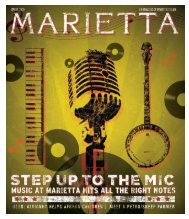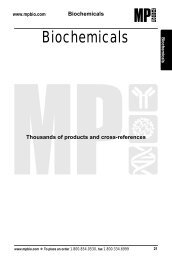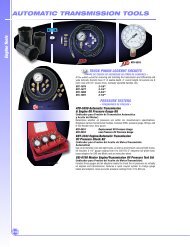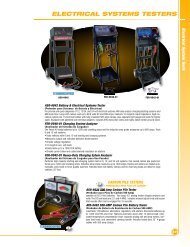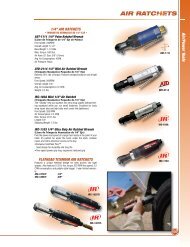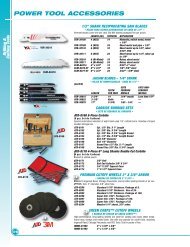INSIDE
INSIDE
INSIDE
Create successful ePaper yourself
Turn your PDF publications into a flip-book with our unique Google optimized e-Paper software.
Consider Alternative<br />
Routes<br />
More business owners today are<br />
turning to Health Savings<br />
Accounts (HSAs) to provide<br />
employees with flexibility and control<br />
over their coverage. In fact, 35 percent<br />
of COSE survey respondents reported<br />
offering an alternative health care funding<br />
option, such as an HSA, Health<br />
Reimbursement Arrangement (HRA)<br />
or Flexible Spending Account (FSA).<br />
That’s up from 20 percent from 2008.<br />
Logan Clutch Corp. began offering<br />
HSAs to employees in January. Currently,<br />
the company owners and product line<br />
managers are taking advantage of the<br />
alternative funding solution. Lisa Logan,<br />
executive vice president, says managers<br />
Think of these plans as bank<br />
accounts that provide<br />
employees with unprecedented<br />
control over their earned<br />
health care dollars.<br />
will use their experience to educate<br />
other employees about the plan.<br />
“If we can give our staff a personal<br />
testimony and say, ‘We tried it. It’s O.K.<br />
Here is how it works,’ they might feel<br />
more secure,” Logan says.<br />
While there is some confusion<br />
concerning how these “alternatives”<br />
work, businesses are embracing these<br />
plans because they can give employees<br />
the perk of an insurance fund that is<br />
flexible, portable (they can take it with<br />
them if they switch employers), and<br />
capable of providing tax advantages.<br />
Still not sure how this could work<br />
for your company? Think of these<br />
plans as bank accounts that provide<br />
employees with unprecedented<br />
control over their earned health<br />
care dollars. They can spend it, or<br />
they can save it—but most important,<br />
employees will soon realize the<br />
true cost of health care and it<br />
won’t take long until they are more<br />
informed consumers.<br />
*COSE strongly encourages participants to<br />
consult with both their accountant and attorney<br />
to discover the best option for their business.<br />
Health Savings Account (HSA) Combines a qualified<br />
high-deductible health plan with a tax-advantaged savings<br />
account, allowing employees to save and pay for routine<br />
medical expenses with pre-tax dollars. Employees own their<br />
account and unused dollars roll over year after year.<br />
Who qualifies? Any individual covered by a qualified high<br />
deductible health plan (HDHP) who is not covered by other<br />
health insurance, Medicare, or is claimed as a dependent.<br />
Health Reimbursement Arrangement (HRA)<br />
An employer funded account that provides reimbursement<br />
for specific employee and dependent medical expenses.<br />
Employees lose unused dollars when they switch employers.<br />
Who qualifies? Any employee that meets an employer’s health<br />
benefits eligibility criteria and are not enrolled in an HSA.<br />
Flexible Spending Account (FSA) Section 125 plans<br />
(the name refers to the section of the Internal Revenue Code)<br />
are also called flexible benefits plans or Flexible Spending<br />
Accounts (FSAs). These plans allow employees to save by<br />
paying for health insurance premiums, out-of-pocket medical<br />
expenses, and child-dependent care expenses with pre-tax<br />
dollars. The company saves by paying lower matching Social<br />
Security and Medicare contributions. However, all dollars<br />
placed in the account will be compromised if not spent by the<br />
end of each year.<br />
Who qualifies? Same as an HRA; however self-employed<br />
individuals are not eligible.<br />
8 • COSE Update Special Insert • June 2009 (216) 592-2222




